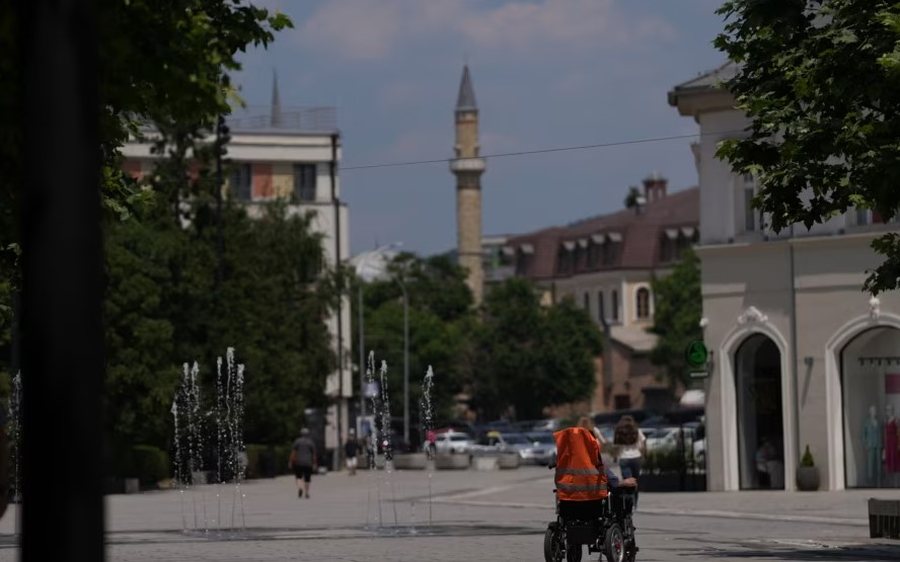
The Western Balkans are facing a severe drought as a heatwave has hit the region, disrupting daily life and creating problems for agriculture and energy.
Temperatures in Kosovo reached 35 degrees Celsius on Thursday, and the Ministry of Health issued a recommendation with protective measures for workers and sensitive groups of the population against high temperatures, for the period July 3 to 10.
The National Institute of Public Health urged people to stay out of direct sunlight and warned children, the elderly, and people with illnesses to stay home.
The lack of water led to the closure of the outdoor swimming pool in the capital Pristina, which was used by people to cool off during the summer heat.
The Germia swimming pool, on the outskirts of the city, was built in the late 1980s as a recreational destination and is considered one of the largest swimming pools on the continent.
At this time last year, the Germia pool had between 4,000 and 5,000 visitors per day.
Germia Park, known for its natural beauty and recreational opportunities, is nestled among hills and mountains that supply the pool with water. But this year, the pool staff was unable to provide the 20,000 cubic meters of water needed.
In previous years, the pool filled within six days, but this year it will take more than three weeks due to the drought, said manager Bardh Krasniqi.
"Due to the severe heat wave currently affecting the country and region, unfortunately we have not been able to open the largest swimming pool in the country," Krasniqi told the Associated Press.
In central Albania, temperatures on Thursday reached 40 degrees Celsius and meteorologists warned that rainfall will be rare until September.
The rivers have almost dried up due to the lack of rainfall during winter and spring.
High temperatures have forced Albanian authorities to help farmers with irrigation networks. A project to draw water from the Mat River in the north to help irrigate about 4,000 hectares of agricultural land in the area was completed on Tuesday.
This situation has also negatively affected electricity production in Albania, which is mainly produced by hydroelectric stations in the north of the country. The National Energy Corporation spent up to 60 million euros importing electricity in the first half of this year.
Serbia's State Meteorological Institute has warned that "extreme drought" is affecting the country's agricultural crops, while water levels in rivers and lakes have decreased.
Small towns and villages in Serbia also face limitations in drinking water supply.
During last week's heatwave in Europe, high temperatures reached 46.6C in Mora, Portugal. Wildfires are common in the region during hot, dry summers./ REL (A2 Televizion)











